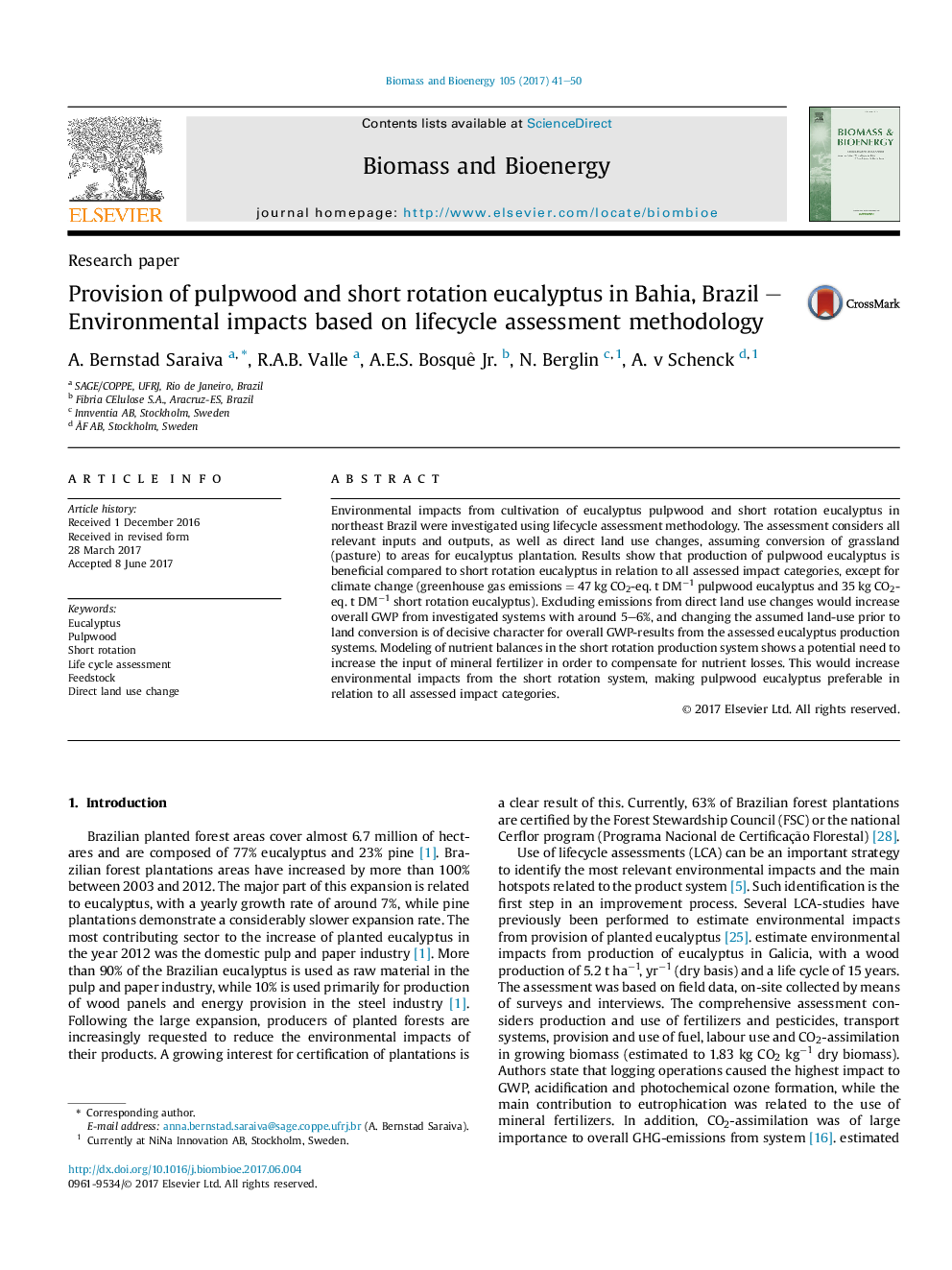| Article ID | Journal | Published Year | Pages | File Type |
|---|---|---|---|---|
| 4996142 | Biomass and Bioenergy | 2017 | 10 Pages |
Abstract
Environmental impacts from cultivation of eucalyptus pulpwood and short rotation eucalyptus in northeast Brazil were investigated using lifecycle assessment methodology. The assessment considers all relevant inputs and outputs, as well as direct land use changes, assuming conversion of grassland (pasture) to areas for eucalyptus plantation. Results show that production of pulpwood eucalyptus is beneficial compared to short rotation eucalyptus in relation to all assessed impact categories, except for climate change (greenhouse gas emissions = 47 kg CO2-eq. t DMâ1 pulpwood eucalyptus and 35 kg CO2-eq. t DMâ1 short rotation eucalyptus). Excluding emissions from direct land use changes would increase overall GWP from investigated systems with around 5-6%, and changing the assumed land-use prior to land conversion is of decisive character for overall GWP-results from the assessed eucalyptus production systems. Modeling of nutrient balances in the short rotation production system shows a potential need to increase the input of mineral fertilizer in order to compensate for nutrient losses. This would increase environmental impacts from the short rotation system, making pulpwood eucalyptus preferable in relation to all assessed impact categories.
Related Topics
Physical Sciences and Engineering
Chemical Engineering
Process Chemistry and Technology
Authors
A. Bernstad Saraiva, R.A.B. Valle, A.E.S. Jr., N. Berglin, A. v Schenck,
